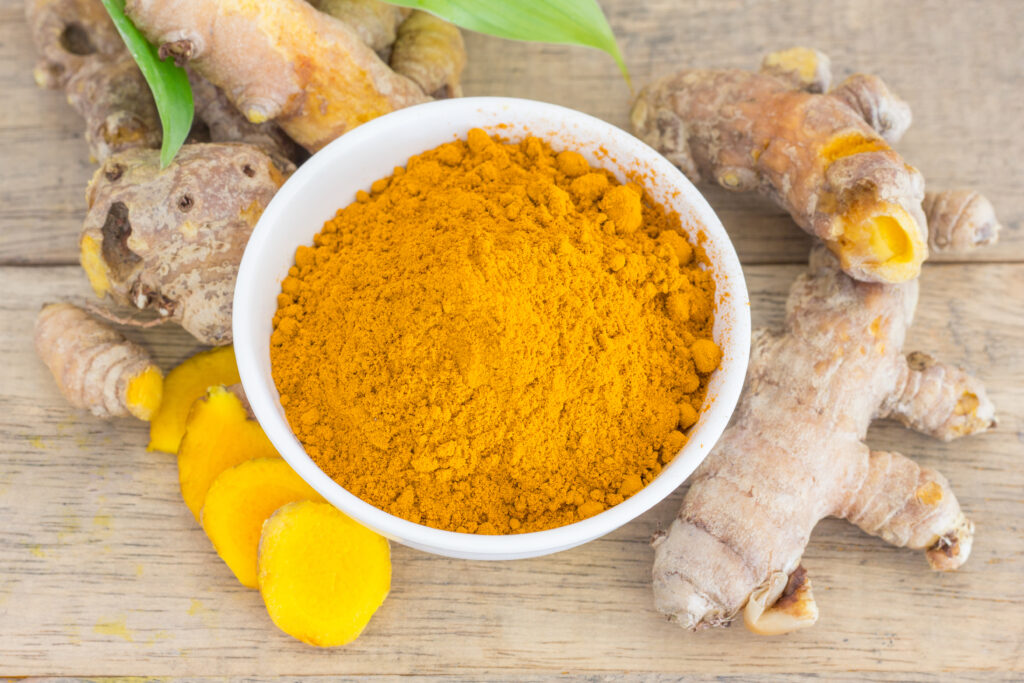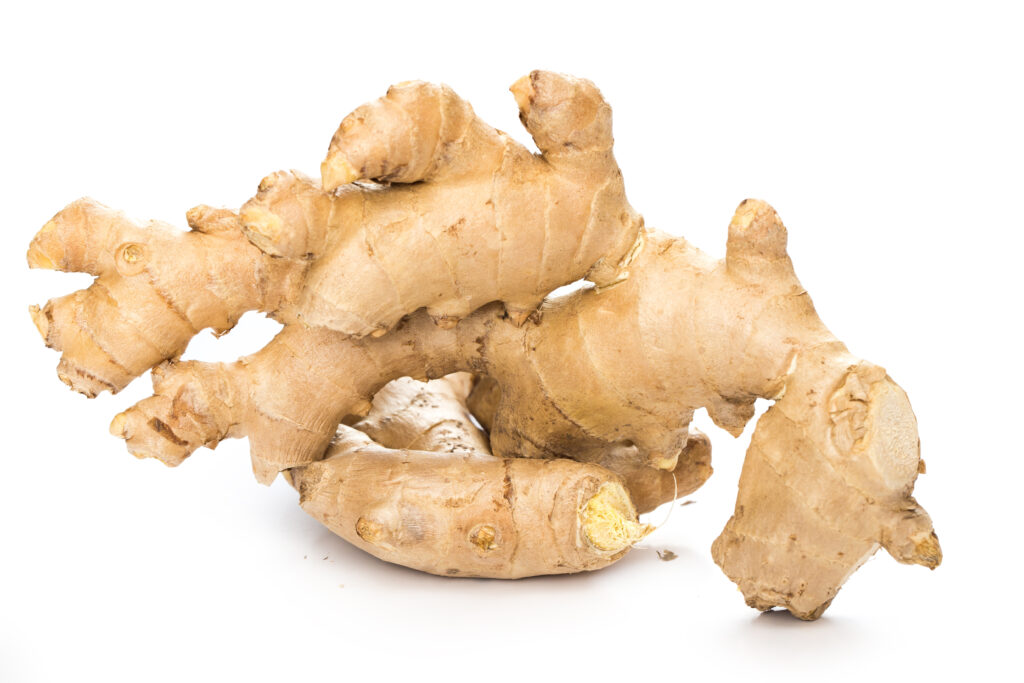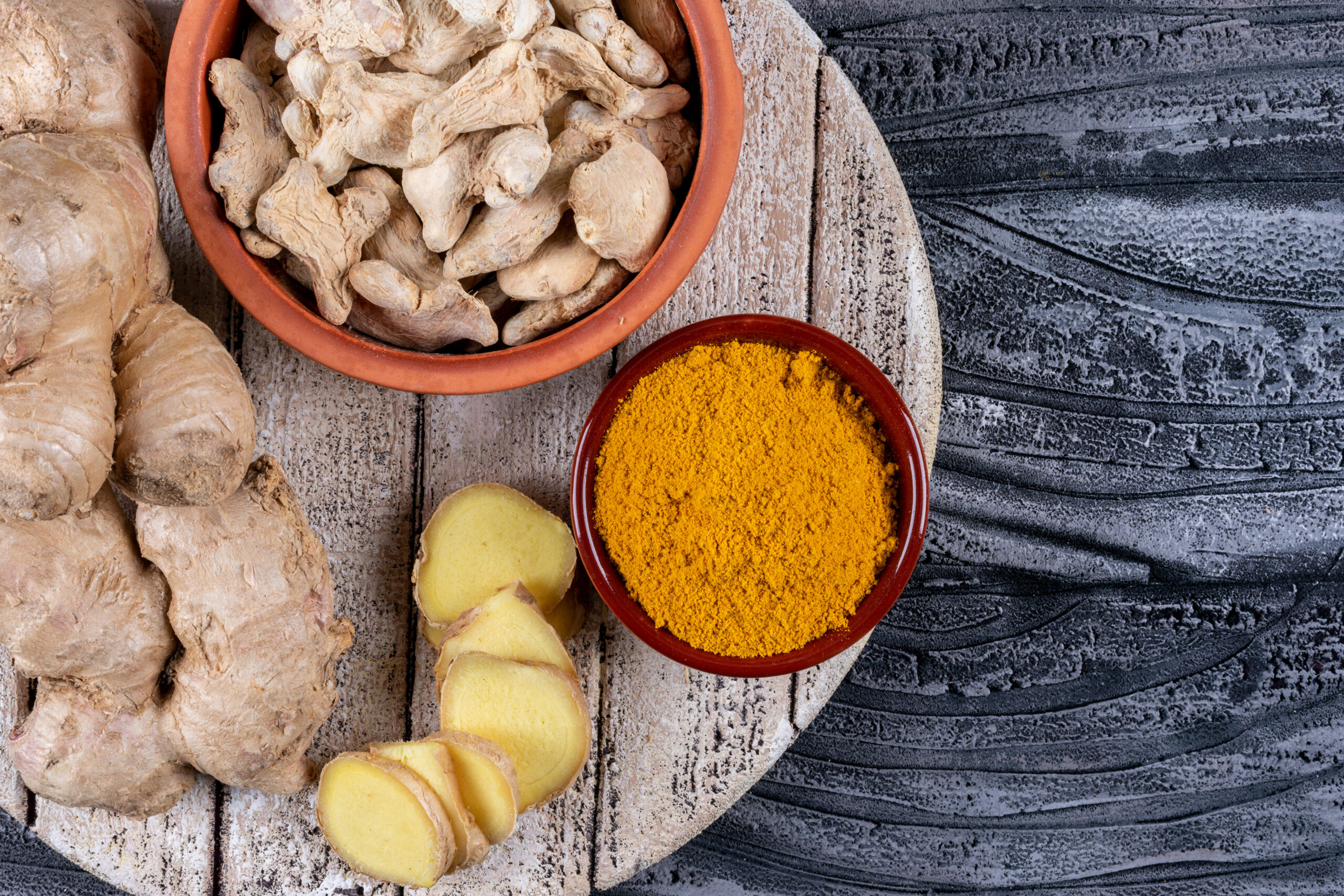Here we are going to share information on the topic “20 benefits of turmeric and ginger.” Embarking on a journey of wellness often leads us to explore the myriad benefits of natural remedies like turmeric and ginger. These two potent ingredients have been revered for centuries for their remarkable medicinal properties.
In this blog, we will uncover the extensive array of benefits that turmeric and ginger offer to our health and well-being. From reducing inflammation to enhancing digestion, turmeric and ginger have long been celebrated for their therapeutic effects. Join us as we delve into the 20 benefits of turmeric and ginger, exploring their profound impact on our holistic health.

20 benefits of turmeric and ginger
10 Benefits of Turmeric
Turmeric is without a doubt one of the nutritious substances that has been studied the most in recent years. All the attention is merited by this age-old herbal component. Turmeric turns out to be more than just a pleasant addition to meals; it also includes physiologically active polyphenols that have a host of positive health effects.
1. Turmeric Aids in Digestion
- The intricate network of organs that make up our digestive system aids in the processing of food into the nutrients our bodies require to survive.
- The lining of the digestive tract acts as a barrier against dangerous bacteria and can influence how well we absorb nutrients. The barrier may be compromised by inflammation of the digestive system lining.
- Turmeric spice calms the digestive tract’s delicate lining and promotes healing and the integrity of the intestinal barrier. This adaptable spice promotes the generation of bile, which facilitates digestion.
2. Turmeric Boosts Metabolism
- By affecting the Janus Kinase enzymes, turmeric helps the body store fat in a favorable way. Although these enzymes serve a variety of purposes, they may also raise pro-inflammatory markers.
- According to preliminary research, turmeric reduces the activity of these enzymes, which encourages the body to burn fat for energy rather than store it.
3. Immune Function Is Enhanced by Turmeric
- Concerns over how best to support optimal immune system function are common. Taking a high-quality turmeric pill is an often-ignored recommendation.
- By enhancing our immunological response, turmeric aids in the management of the immune system. Immunity against viruses and other microbes that may be harmful to our health is aided by antibodies.
- For an extra dose of immune support, stir a spoonful of turmeric into your tea or chicken noodle soup. Alternatively, use turmeric pills for a convenient, immediate onset of benefits.
4. Enhances The Complexion of Skin
- Would your skin benefit from a little TLC? Inflammation is the underlying cause of many skin issues. Applying topical treatments containing turmeric or ingesting the herb itself can help reduce inflammation.
- The anti-inflammatory properties of turmeric might help your skin seem more vibrant.
5. Turmeric Promotes Healthy Bones
- Osteoblasts and osteoclasts, two types of bone cells, are continuously breaking down and rebuilding the dynamic structure of bones.
- Bone loss may result from this process being less effective as we age. Because it inhibits osteoclasts’ capacity to break down bone, turmeric promotes bone density.
- Maintaining the health of your bones well into your golden years can be benefited by this.
6. Turmeric for Stiffness and Joint Mobility
- Curcuminoids found in turmeric have received a lot of attention due to their ability to reduce inflammation.
- Particular clinical trials have shown that taking a high-quality turmeric supplement improves knee joint mobility.
- In one study, senior volunteers who took turmeric for three months reported improved joint comfort and mobility throughout a physical activity test that involved climbing nine stairs and walking 80 metres at a fast speed.
7. Encourages Appropriate Blood Pressure Levels
- Numerous things can have an impact on blood pressure.
- Blood pressure is directly correlated with the expansion and contraction of blood vessels in our bodies, which is facilitated by alpha receptors.
- Studies reveal that turmeric helps lower blood pressure by inhibiting the action of certain alpha receptors that constrict and stiffen blood vessels (within normal limits).
8. Curcumin Enhances Health of Circulation
- In addition to promoting normal blood pressure within the appropriate range, turmeric also enhances cardiovascular health and general circulation.
- Blood flow is facilitated by blood platelets becoming less sticky due to the properties of turmeric. Before taking turmeric supplements, see a doctor if you take blood thinners.
9. Curcumin Prevents Cognitive Aging
- Memory and other cognitive abilities that deteriorate with age can be improved by shielding the brain from aging-related variables like oxidative stress.
- Long-term memory impairment may result from plaque deposits in the brain, which curcumin prevents from forming.
- Turmeric spice’s curcuminoids reduce oxidative stress, extending the life of neurons, which are the messenger cells in our brains.
10. Benefits of Turmeric for Liver Health
- There is proof that turmeric has a beneficial effect on the enzymes linked to the buildup of fat in the liver.
- Additionally, turmeric reduces inflammation, which may be harmful to the liver.
Benefits of ginger

Given its anti-inflammatory and anti-nausea qualities, among other things, ginger may offer a wide range of health advantages. It might assist you in managing your arthritis, reducing menstrual discomfort, losing weight, and more.
Ginger is derived from a Southeast Asian flowering plant. It provides several health advantages and enhances the flavor of both savory and sweet dishes. As a member of the Zingiberoside family, it shares a close relationship with galangal, cardamom, and turmeric.
Typically, the portion of the stem that is used as a spice is the rhizome, or underground portion. It’s frequently referred to as ginger or just ginger.
Ginger can be used in juice or oil, dried, powdered, or fresh. It is an ingredient in a lot of recipes, processed foods, over-the-counter medications, and cosmetics.
What are the 10 health benefits of ginger?
These 10 health advantages of ginger are backed by scientific studies.
1. Contains gingerol, which has powerful therapeutic effects.
- Ginger has long been used in both conventional and complementary medicine. Among its many uses are to help with digestion, lessen nausea, and combat the common cold and flu.
- Ginger derives its distinct flavor and aroma from its natural oils, the most significant of which is gingerol.
- The primary bioactive ingredient in ginger is gingerol. It is the cause of many of the therapeutic benefits of ginger.
- Studies have shown that gingerol has potent anti-inflammatory and antioxidant properties (Reliable Source). For example, it might aid in lowering oxidative stress, which is brought on by the body producing an excessive amount of free radicals.
2. Is able to alleviate nausea and morning sickness
- Ginger has been shown to be a reliable source of relief from nausea, especially morning sickness, which is nausea connected to pregnancy.
- Ginger may lessen the nausea brought on by chemotherapy and help patients experiencing some types of surgery feel better after vomiting.
- Although typically safe, if you’re pregnant, it’s important to consult a doctor before taking large amounts.
- Ginger might not be a good trusted source for expectant mothers who are nearing labour or who have experienced vaginal haemorrhage or miscarriage in the past. It might not be appropriate for people who have clotting issues, either.
3. Could aid in losing weight
- Studies on both humans and animals suggest that ginger may help with weight loss.
- A single 2019 evaluation According to a reliable source, taking supplements of ginger considerably lowered body weight, the hip-to-waist ratio, and the waist-hip ratio in overweight or obese individuals.
- Ginger may have some effect on weight loss through certain mechanisms, such as its anti-inflammatory properties.
4. Is beneficial for osteoarthritis
- Degeneration of the joints causes osteoarthritis (OA), which manifests as joint stiffness and discomfort.
- According to one review, ginger may lessen pain and impairment. Depending on the study, the subjects consumed 0.5–1 grammes of ginger daily for 3–12 weeks. The majority were diagnosed with OA of the knee.
- Nevertheless, additional research (trusted source) has not discovered any proof of the same impacts.
- Many, however, stopped their treatment because they found ginger to be unpleasant to taste or because it irritated their stomachs.
5. May improve heart disease risk factors and lower blood sugar
- According to several studies, ginger may offer benefits for diabetics.
- 41 individuals with type 2 diabetes used 2 grammes of ginger powder daily as part of a 2015 study, according to Trusted Source.
- A review for 2022 According to Trusted Source, taking supplements containing ginger significantly lowered HbA1c and fasting blood sugar levels in individuals with type 2 diabetes.
- Results from 10 trials, in which subjects took 1,200–3,000 mg daily for 8–13 weeks, were examined in the evaluation.
- The lipid profile was not shown to be impacted by ginger supplementation.
Twelve weeks later:
- Their haemoglobin A1c (HbA1c) levels were 10% lower, their apolipoprotein B/apolipoprotein A-I ratio was 28% lower, and their malondialdehyde (MDA) levels were 23% lower. These differences were observed in their fasting blood sugar levels as well.
- Oxidative stress can lead to elevated levels of malondialdehyde (MDA) and a high ratio of apolipoprotein B to apolipoprotein A-I. Both of them increase the risk of heart disease.
- To validate these findings, additional research is necessary, as this was a tiny study.
- Ginger has been shown in a 2019 analysis to lower type 2 diabetes patients’ HbA1c levels, but the investigators did not draw the same conclusion about fasting blood sugar levels.
6. Is useful in treating persistent dyspepsia
- Ginger accelerates the movement of food through the stomach, which may help with indigestion.
- When someone experiences indigestion without a known cause, they are said to have functional dyspepsia. This condition manifests as nausea, belching, bloating, and abdominal pain. Irritable bowel syndrome (IBS) is frequently associated with it.
- In one study, researchers at Trusted Source discovered that, in comparison to taking a placebo, indigestion symptoms in patients with functional dyspepsia were considerably reduced when a ginger and artichoke mixture was taken before a large meal.
7. Could lessen the pain associated with menstruation
- Menstrual pain, or dysmenorrhea, may be lessened with the use of ginger.
- According to certain studies, ginger relieves menstruation pain more effectively than acetaminophen, coffee, or ibuprofen (Novafen).
- But additional research is required.
8. Could aid in lowering cholesterol
- Elevations in low-density lipoprotein (LDL) cholesterol have been associated with a heightened risk of cardiovascular disease.
- Researchers discovered that eating ginger considerably raised HDL cholesterol and decreased triglycerides and LDL cholesterol in a 2022 review of 26 trials. The effectiveness of doses lower than 1,500 mg daily was observed.
- But if you don’t like the flavour of ginger, it could be difficult to consume such large amounts of it in your diet.
9. Could lower the risk of cancer
- Because of gingerol and other antioxidant and anti-inflammatory chemicals, ginger may have anticancer benefits.
- Certain gastrointestinal malignancies, including colorectal, pancreatic, and liver cancer, have been linked to these substances, according to some evidence.
- Twenty individuals at high risk of colorectal cancer ingested 2 g of ginger every day for 28 days as part of a study conducted by Trusted Source. The participant’s intestinal lining showed fewer cancer-like alterations at the conclusion of the trial than anticipated.
- Nevertheless, the majority of research on ginger and cancer risk has not included human participants.
10. May prevent Alzheimer’s disease and enhance brain function
- According to certain studies, the chemicals 6-shogaol and 6-gingerol found in ginger may be able to fend off degenerative illnesses like multiple sclerosis, Parkinson’s disease, and Alzheimer’s.
- Alzheimer’s disease and age-related cognitive loss may be significantly influenced by oxidative stress and chronic inflammation.
- According to certain research on animals, ginger’s bioactive components and antioxidants may be able to reduce the brain’s inflammatory reactions. This could aid in halting cognitive ageing.
Frequently asked questions
20 benefits of turmeric and ginger
What organ is ginger good for?
Furthermore, studies suggest that ginger may help promote more movement through the digestive tract, which may help alleviate or avoid constipation. Additionally, pancreatic lipase, an enzyme that helps with small intestine digestion, seems to benefit from ginger.
What happens if you drink ginger every day?
Although it is safe to consume on a daily basis, doctors advise keeping your intake to 3 to 4 grammes per day; if you are pregnant, stick to 1 gramme per day. It has been demonstrated that consuming more than 6 grammes of ginger daily might result in gastrointestinal problems such as diarrhea, heartburn, and reflux.
When not to take ginger?
Individuals with diabetes, heart disease, and those who are pregnant or nursing should not take ginger without first seeing their physicians. If you take blood-thinning drugs, such as aspirin, or if you have a bleeding issue, do not consume ginger.
What happens if you drink ginger and turmeric every day?
According to some research, ginger and turmeric may help lower inflammatory indicators, ease chronic pain, lessen nausea, and strengthen the immune system.
Who should not use turmeric?
When used with prescribed anticoagulants, high doses of turmeric may have a blood-thinning effect that raises the risk of severe bleeding. Supplementing with turmeric might increase the production of bile; hence, it is not recommended for anyone with liver or bile duct issues. Turmeric shouldn’t cause any issues when cooked with.
Is turmeric good for the kidney?
Turmeric’s primary bioactive ingredient, curcumin, has potent anti-inflammatory and antioxidant qualities. Though curcumin and turmeric are typically safe to eat, there is such a thing as too much good. The possibility of renal damage from high dosages is one of the hazards.
Conclusion
20 benefits of turmeric and ginger
In conclusion, the combined power of turmeric and ginger offers a wealth of health benefits that cannot be overstated. From their anti-inflammatory properties to their ability to aid digestion and boost immunity, turmeric and ginger stand as pillars of natural wellness. By incorporating these two potent ingredients into our daily lives, we can harness their transformative effects and strive towards a healthier, more vibrant existence. Let the remarkable benefits of turmeric and ginger inspire you on your journey to optimal health and well-being.
So, this is how the topic “20 benefits of turmeric and ginger” has been addressed.
For more information related to these topics,
You may also visit our Instagram page by
Thank you!

